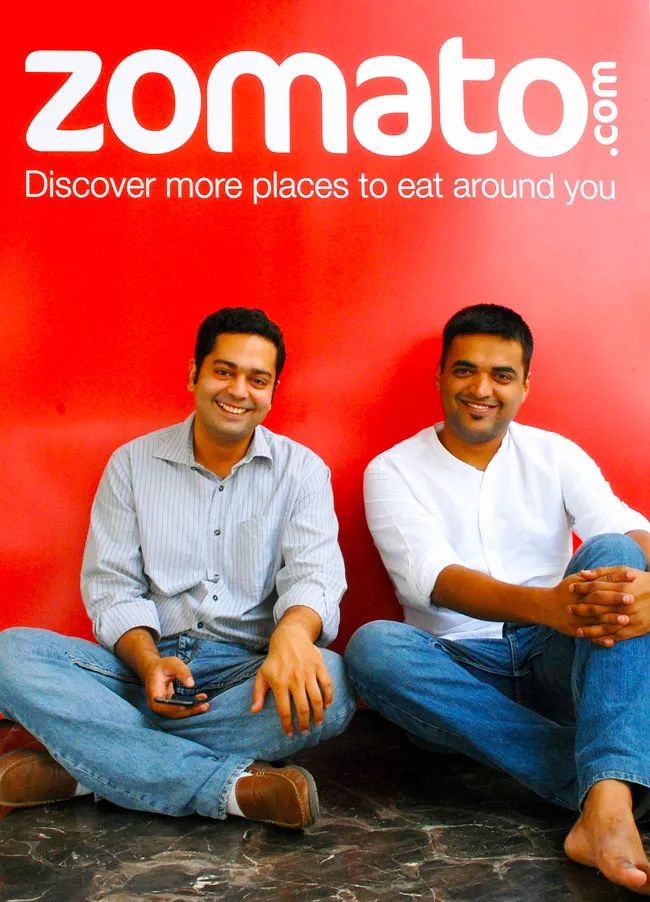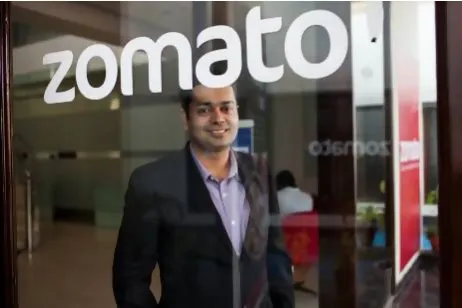5 years on, a look back into Zomato's past and a glimpse into their future
When Shakespeare said “What’s in a name?” he was perhaps emotional as he penned down the epic Romeo And Juliet. But ask Zomato and they have everything to owe to their name. Nobody knew them when they were called Foodiebay.com, but since rechristening two and a half years back, Zomato has grown beyond many people’s wildest imagination. In the run up to their fifth birthday, Zomato kicked off the second edition of their Restaurant Summit on the 1st of Feb in Bangalore, which brought together veterans and who’s who of restaurant industry, to discuss the burning issues faced by the industry.
At the summit, YourStory caught up with with Pankaj Chaddah, the co-founder of Zomato, and Saurabh Sengupta, the India head for Zomato, to get a glimpse of the past, present and the future of the company, from the folks who run it.
The Days of Struggle

Since launch in June 2008 Zomato has come a long way and for the founders, Deepinder and Pankaj most things they did at Zomato was also the first time in their life. “We hired for the first time, we planned organizational ops for the first time, we expanded to other parts of the country and the world for the first time. We had no knowledge about these things in our past ventures and touch wood, we’ve been doing alright so far,” says Pankaj
But this journey was not without its challenges. Talent has been the number one pain point, besides the numerous day-to-day problems they faced. But problems were never a deterrent for the company and today Pankaj is quite pleased with the way things have worked out.
Growth, breaking even and international expansion
Growth for Zomato, ever since the rebranding, has been exponential. Pankaj Chaddah mentioned in his talk at the Restaurant Summit, that from 1 million unique visitors per month in 2011, they have grown to 8 million unique visitors, by the end of 2012. According to Saurabh Sengupta, this 200+ employee organization is reaching operational break even.
Much of Zomato’s growth can be credited to the product itself. Zomato helps choose places they can hang out with their friends. While Zomato has invested considerably in

marketing efforts, word of mouth has been more powerful in taking this product to the masses. They have also been fairly aggressive in expanding their products and services.Last year, according to Saurabh, Zomato grew to touch 12 cities in India which includes all the major metros. “The metros are also our highest revenue earners,” says Saurabh. Traffic has grown many fold and the website has 8 million visits per month. With over 200 people in its workforce, Zomato will be hiring more people in sales. Going international will further increase the need for manpower.
Zomato also enjoys significant traffic from their mobile product. Saurabh said, “Almost 30-40 percent of our traffic comes from our mobile apps. The cities that see the most usage are Mumbai, Bangalore, Delhi and Hyderabad, in that order. In fact in Mumbai we are still seen as a mobile app company.”
The Future
When asked about future plans, Pankaj says international expansion is next on cards. “There is a gap in the restaurant discovery space in the US which we will be looking to address in the coming months. We will be improving our sales force in other countries as well,” he says. Pankaj also hinted that Zomato may raise another round of funding to support their international expansion.

As a business idea, going international is quite interesting. If Zomato can be a real player in international markets, acquisition by a larger player is very much a possibility, giving the investors and the company a clean and profitable exit route. However this won’t be the first one to be acquired — Yelp acquired Qype for $50 million and Google acquired Zagat. If this was one of the intention behind going international, it might not be a bad idea at all.
But Pankaj has a different take on this. He says, “We really haven’t thought about going that route at all. We have figured out a way to monetize pretty well and we’re only looking to go to as many markets and dominate.”
Possible challenges
Going by the amount of competition that Zomato has in India, there’s always the looming prospect of a disruptive solution in the space. This might be especially applicable in markets like London, where the only competition that Zomato has is Zagat and Just-Eat. There is space for others to come in.
The market in a place like London is also very different from the ones that Zomato lists. User behaviour in London will be different from India. And the technology user base in London is more mature than other countries, and they will be reactive to things like design flaws in the product. In India itself, it will be interesting to see how Zomato enters small cities and towns.
The future maybe unclear, but this is a moment of celebration. It is a proud moment for the Indian startup ecosystem on the whole, to have nurtured and given the world a company like Zomato.







